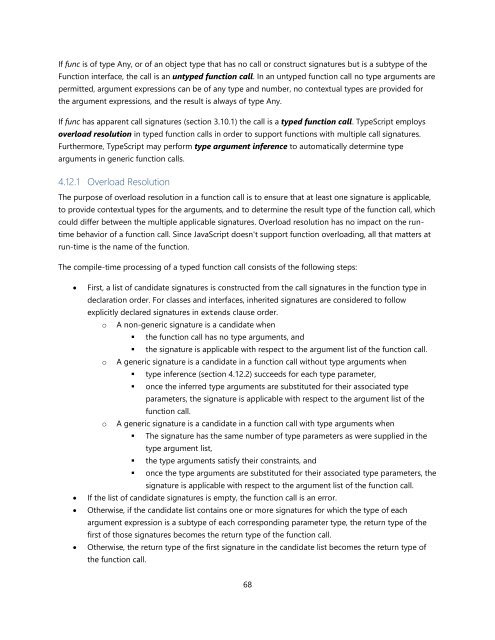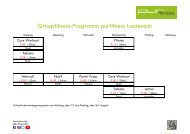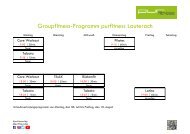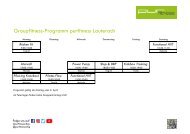TypeScript Language Specification v1.5
TypeScript Language Specification v1.5
TypeScript Language Specification v1.5
You also want an ePaper? Increase the reach of your titles
YUMPU automatically turns print PDFs into web optimized ePapers that Google loves.
If func is of type Any, or of an object type that has no call or construct signatures but is a subtype of the<br />
Function interface, the call is an untyped function call. In an untyped function call no type arguments are<br />
permitted, argument expressions can be of any type and number, no contextual types are provided for<br />
the argument expressions, and the result is always of type Any.<br />
If func has apparent call signatures (section 3.10.1) the call is a typed function call. <strong>TypeScript</strong> employs<br />
overload resolution in typed function calls in order to support functions with multiple call signatures.<br />
Furthermore, <strong>TypeScript</strong> may perform type argument inference to automatically determine type<br />
arguments in generic function calls.<br />
4.12.1 Overload Resolution<br />
The purpose of overload resolution in a function call is to ensure that at least one signature is applicable,<br />
to provide contextual types for the arguments, and to determine the result type of the function call, which<br />
could differ between the multiple applicable signatures. Overload resolution has no impact on the runtime<br />
behavior of a function call. Since JavaScript doesn't support function overloading, all that matters at<br />
run-time is the name of the function.<br />
The compile-time processing of a typed function call consists of the following steps:<br />
<br />
<br />
<br />
<br />
First, a list of candidate signatures is constructed from the call signatures in the function type in<br />
declaration order. For classes and interfaces, inherited signatures are considered to follow<br />
explicitly declared signatures in extends clause order.<br />
o A non-generic signature is a candidate when<br />
• the function call has no type arguments, and<br />
• the signature is applicable with respect to the argument list of the function call.<br />
o A generic signature is a candidate in a function call without type arguments when<br />
• type inference (section 4.12.2) succeeds for each type parameter,<br />
• once the inferred type arguments are substituted for their associated type<br />
parameters, the signature is applicable with respect to the argument list of the<br />
function call.<br />
o A generic signature is a candidate in a function call with type arguments when<br />
• The signature has the same number of type parameters as were supplied in the<br />
type argument list,<br />
• the type arguments satisfy their constraints, and<br />
• once the type arguments are substituted for their associated type parameters, the<br />
signature is applicable with respect to the argument list of the function call.<br />
If the list of candidate signatures is empty, the function call is an error.<br />
Otherwise, if the candidate list contains one or more signatures for which the type of each<br />
argument expression is a subtype of each corresponding parameter type, the return type of the<br />
first of those signatures becomes the return type of the function call.<br />
Otherwise, the return type of the first signature in the candidate list becomes the return type of<br />
the function call.<br />
68


















